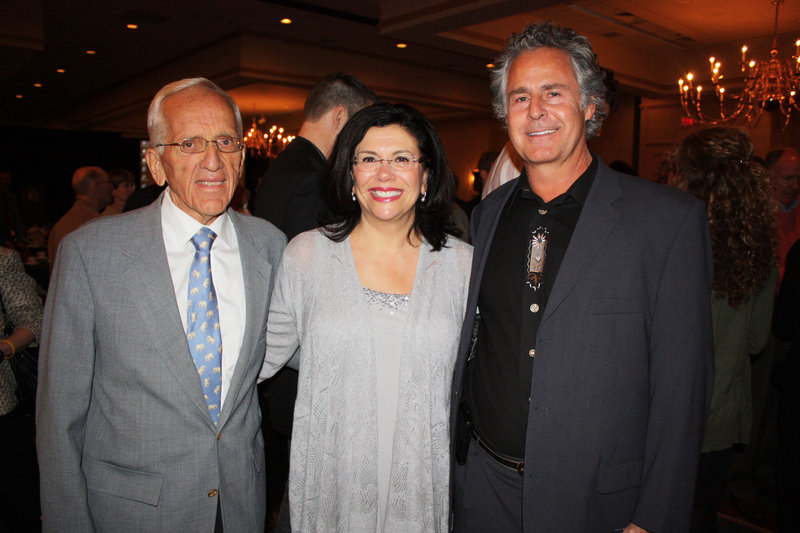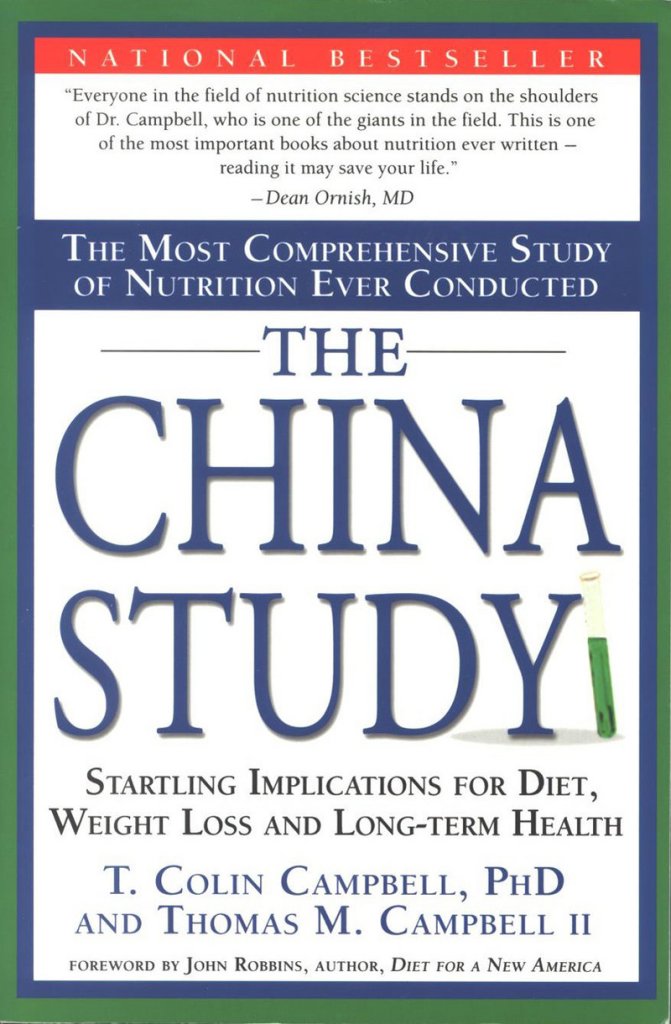Renowned nutrition researcher T. Colin Campbell, Ph.D., grew up on a dairy farm in Virginia. But last Thursday night at the Holiday Inn by the Bay in Portland, he told the crowd that milk protein “is the most relevant chemical carcinogen ever identified.”
Campbell, a professor emeritus at Cornell University and co-author of the best-selling book “The China Study: Startling Implications for Diet, Weight Loss and Long-Term Health,” was there to deliver a talk titled “Whole Food, Plant-Based Nutrition” at Mercy Hospital’s annual banquet for its doctors.
While Campbell is a star among the health-food set and arrived in Maine fresh from the Hollywood premiere of the “Forks Over Knives” documentary in which he plays a leading role, his unconventional message is rarely heard in the hallowed halls of Western medicine.
The fact that he was invited to address the doctors of one of Maine’s largest hospitals shows that change is coming, and that Mercy may be positioning itself to play a leading role.
Campbell began his talk by outlining the research that set him on the path to understanding the critical role food plays in health.
Early in his career, he conducted animal studies in which rats were exposed to a powerful carcinogen and then fed a diet of either 20 percent or 5 percent protein.
All the rats fed 20 percent protein developed liver cancer. The 5 percent rats did not.
“Here’s a big shocker,” he said. “The protein we were using was casein. The main protein in cow’s milk has become a potent carcinogen.”
Then Campbell and his team decided to see if they would get the same results using other proteins, mainly soy and wheat. What they found is that plant proteins don’t promote cancer growth, even at the 20 percent levels.
“I was raised on a dairy farm milking cows,” Campbell said. “This became a little bit more personal than just professional.”
As a result, he and his family began transitioning their diet from one based on animal foods to one based on plants.
Campbell pointed out that population studies consistently show that people who eat the most animal foods have the highest cancer rates, including breast, uterine and endometrial cancers.
Demonstrating that it’s not just the fat in animal products that causes the spike in cancer, Campbell discussed research that showed men who consumed the most skim milk had the highest rates of prostate cancer.
Discussing his work in China, he said the research team found that “as cholesterol increases from 90 to 170, the diseases of affluence begin to appear. As animal protein starts to go up, cholesterol goes up and the Western diseases go up.”
Interestingly enough, a cholesterol level of 170 is considered “low” in the U.S., where the standard diet relies heavily on meat, dairy and eggs.
Many people often blame cancer on genes, but Campbell said the research shows something else.
“Genes are not the primary determinant of cancer,” Campbell said. “It’s really about diet and nutrition.”
In conclusion, Campbell said, “the group that needs to lead this effort (to encourage people to eat more plants) is the medical community. You’re the ones out there doing the work with the people.”
THINKING IN A DIFFERENT WAY
Some of Mercy’s doctors are already following Campbell’s path.
Dr. Jeffrey Rosenblatt, who is president of Mercy’s medical staff and practices at Maine Cardiology Associates, organized the dinner and extended the invitation to Campbell.
“I hope to get the medical community to think about disease treatment in a different way,” Rosenblatt told me. “I think there’s going to be more emphasis on nutrition. If you think it’s expensive to buy healthy foods, take a look at your patients’ medicine costs.
“As we have to foot the bill to take care of our aging population, there’s going to be more emphasis on prevention. And Dr. Campbell shows most of the diseases we spend money on are preventable.”
Rosenblatt said his goal is to invite Campbell back to Maine and have him speak at an event open to the public.
With more than 170 people in the audience, Mercy President Eileen Skinner and Vice President of Medical Affairs Dr. Scott Rusk both attributed the big turnout to interest among the medical staff in Campbell’s research.
“Dr. Campbell’s book is a shifting book,” said Dr. Reuben Bell, who practices geriatrics and teaches at the University of New England. “I had it for three years before I read it. Once I did, I came downstairs and I said to my wife, ‘Jill, I’m a vegan.’
“If you’re ready, that book is a life-changing book.”
Staff Writer Avery Yale Kamila can be contacted at 791-6297 or at: akamila@pressherald.com
Follow her on Twitter at: Twitter.com/AveryYaleKamila
Copy the Story Link
Send questions/comments to the editors.




Success. Please wait for the page to reload. If the page does not reload within 5 seconds, please refresh the page.
Enter your email and password to access comments.
Hi, to comment on stories you must . This profile is in addition to your subscription and website login.
Already have a commenting profile? .
Invalid username/password.
Please check your email to confirm and complete your registration.
Only subscribers are eligible to post comments. Please subscribe or login first for digital access. Here’s why.
Use the form below to reset your password. When you've submitted your account email, we will send an email with a reset code.